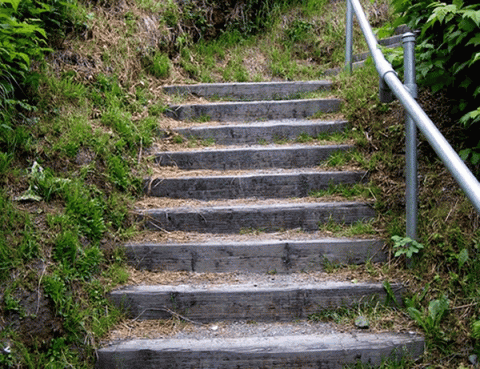|
Doing your part during a trip to Alaska's public lands can make the experience better for everyone involved, including yourself. Doing your part is more than just respecting wildlife; it's also respecting the land you walk and camp upon. So take our advice, Leave No Trace, tread lightly, and have a great trip!
Helping OthersPlease do not hesitate to stop and help others in need of emergency care. Alaska has a Good Samaritan statute - this means that the laws of this state protect persons from liability for civil damages for acts related to rendering emergency care or treatment to injured persons.LitterAlaska's beautiful roadsides can be greatly blemished by paper, cans, and other litter. Please remember to keep a litter bag in your car as you travel, and dispose of it in one of the roadside receptacles provided for this use. Remember that wildlife - bears in particular - are attracted to litter, so make sure that litter containers are used properly. Littering in Alaska is punishable by a fine of not more than $1000, imprisonment of up to 90 days, or both.WasteWaterCamping waste water from washing should not be poured into a stream or directly onto the ground. It is best to pour waste water into a hole located away from water sources, so that in may disperse into the subsurface soil. RV's should dump grey water only at approved dump stations.
NPS Photo PetsYour pets could become someone else's pest. PLEASE keep your pets on a leash and clean up after them. Many towns and cities have local "leash laws." Alaska's law requires that all animals entering the State have health certificates, and cats and dogs have current rabies vaccinations. Pet owners are encouraged to have all vaccinations up-to-date. Hunting and FishingAlaska has specific hunting and fishing seasons and bag limits for its different species of fish and game. Disposal of fish heads, bones, and viscera properly will reduce bear/people conflicts. In general, toss the heads, bones and viscera well into the main current. High use areas may have more restrictions on disposal. Check the Alaska Department of Fish and Game, a sporting goods store, or one of the Public Lands Information Centers for laws and regulations covering hunting and fishing. Invasive SpeciesSpecies that are non-native can be transported via clothing, boots, pet fur, and vessels. To help prevent the spread of species that can take over ecosystems, please visit our Invasive Species page. [Under Construction] Disposal of Waste Boat or Motor OilIt is illegal to pour waste oil onto the ground or into a stream. Gas stations, harbor facilities, and some municipalities have the capacity to safely dispose of or recycle used motor oil. Report all oil and hazardous substance spills! Alaska law requires that all spills be reported: call 1-800-478-9300, and please report any incidence of pollution or environmental damage to the closest office of the Department of Environmental Conservation. SmokingAlaska's smoking law prohibits smoking in many public facilities so be sure to watch for "Smoking Prohibited by Law" signs. If you do smoke, look for the "Designated Smoking Area" signs. Disposal Sites for Self-Contained Trailer UnitsIt is illegal to dump human waste onto lands or into streams. In consideration of others, for both public, health and aesthetic reasons, please abide by this request! You can find disposal sites online.
|
Last updated: December 7, 2023
